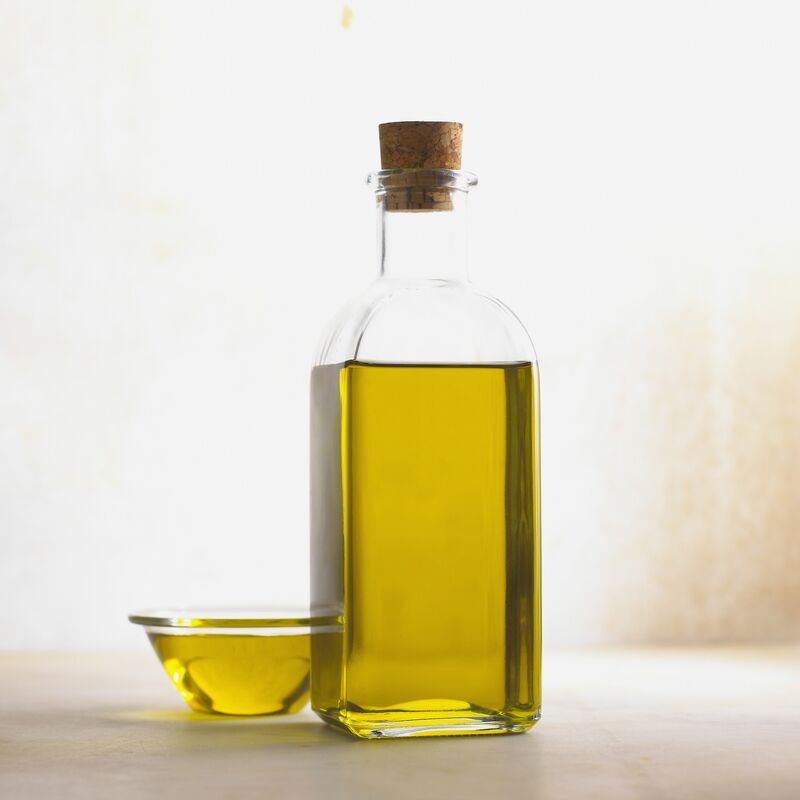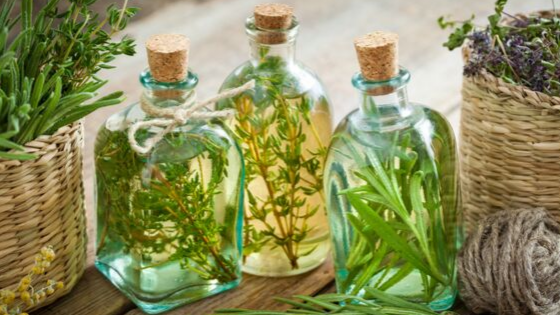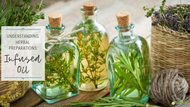Understanding Herbal Preparations- Infused Oil
Posted by TriLight Health on Sep 27th 2019
Next up in our herbal preparations series is an herbal preparation that is not as well known. The herb infused oil is most commonly thought of as a culinary preparation. We've all seen infused and flavored olive oils popping up at trendy markets in town and kiosks in the mall. These are not what we're talking about. Today we're taking a look at herbal infused oils that are used in herbal medicine.

What is an herb infused oil?
These may be thought of as an infusion or decotion with oil. In an herb infused oil we're looking to extract the medicinal and healing properties of the herbs to use in a variety of applications. Like a salve an infused oil is going to be used topically, unlike the infusion or decotion. There are culinary infused oils as well. Today we're going to look at infused oils for topical use only. Safflower oil, olive oil, jojoba, or rose seed oil are most often used though many other types of oils can be used. Herbs are then placed in the oil and remain in the oil for a set amount of time. This allowed the beneficial properties of the herb to meld with the oil.

How to make an infused oil
Preparing these infused oils is an easy process. You will need to do a bit of research to decide which type of oil is best to use with the desired herbs and final product. Different herbs work better with different types of oils. People also choose a different type of oil depending on what the infused oil will be used for. We are not going to cover those specifics in this post but there is a lot of information out there to make a final decision.
Herb infused oils can be made through a variety of methods including on the stove, in the crock-pot, and in the oven. The most common method is the solar infusion method which we'll discuss today.
The instructions below are for a traditional solar infused oil.
First, select the herbs you want to use. This is one application where you'll want to use dried herbs as fresh herbs can cause the oil to go rancid. Make sure herbs and all tools are totally dry before proceeding.
Note- A single herb may be used or a blend of a few herbs. Sometimes herbalists choose to grind or mash herbs before infusing.
Next, fill a sterilized and dry mason jar 1/2 - 3/4 full with your desired herbs. Cover the herbs with oil and stir gently with a sterilized, dry spoon. Ensure the herbs are thoroughly coated with oil.
Note- There's not an exact science to this. The amount you use will depend on the size of jar and the size of the herb. You need to leave enough room so that if the herb expands it's not going to overflow your jar! Keep an eye on your jar as the herbs may expand and more oil might need to be added.
Then, tightly cover the jar and place on a sunny & warm windowsill for 3-6 weeks.
Note- You don't want it getting direct sunlight but want to make sure it's getting plenty of warmth from the sun. Check on occasion to make sure it's not going rancid and stir or gently roll your jar every few days to help with the infusion process. The final length of infusion is up to you, six weeks is most typical.
Last, strain herbs through cheesecloth. Gather together the cheesecloth to squeeze out as much oil as possible.
Note- A dash of vitamin E oil is often used as a natural preservative. Store in a cool, dry place.
Make sure any infused oils within a year and check regularly to make sure they're not going rancid..
How are herb infused oils used?
An herbal oil can be used as a massage oil or in several other ways such as:
- Homemade soap
- Bath oil
- Body scrub
- Lotion
- Facial treatment
- Hair treatment
- Joint pain treatment
- Sore muscle rub
- Headache application
- Stress relief oil
- Wound healing
- Ear infection and ear pain
These make a lovely addition to a home apothecary, in homemade body care products, or fun a unique gift.





